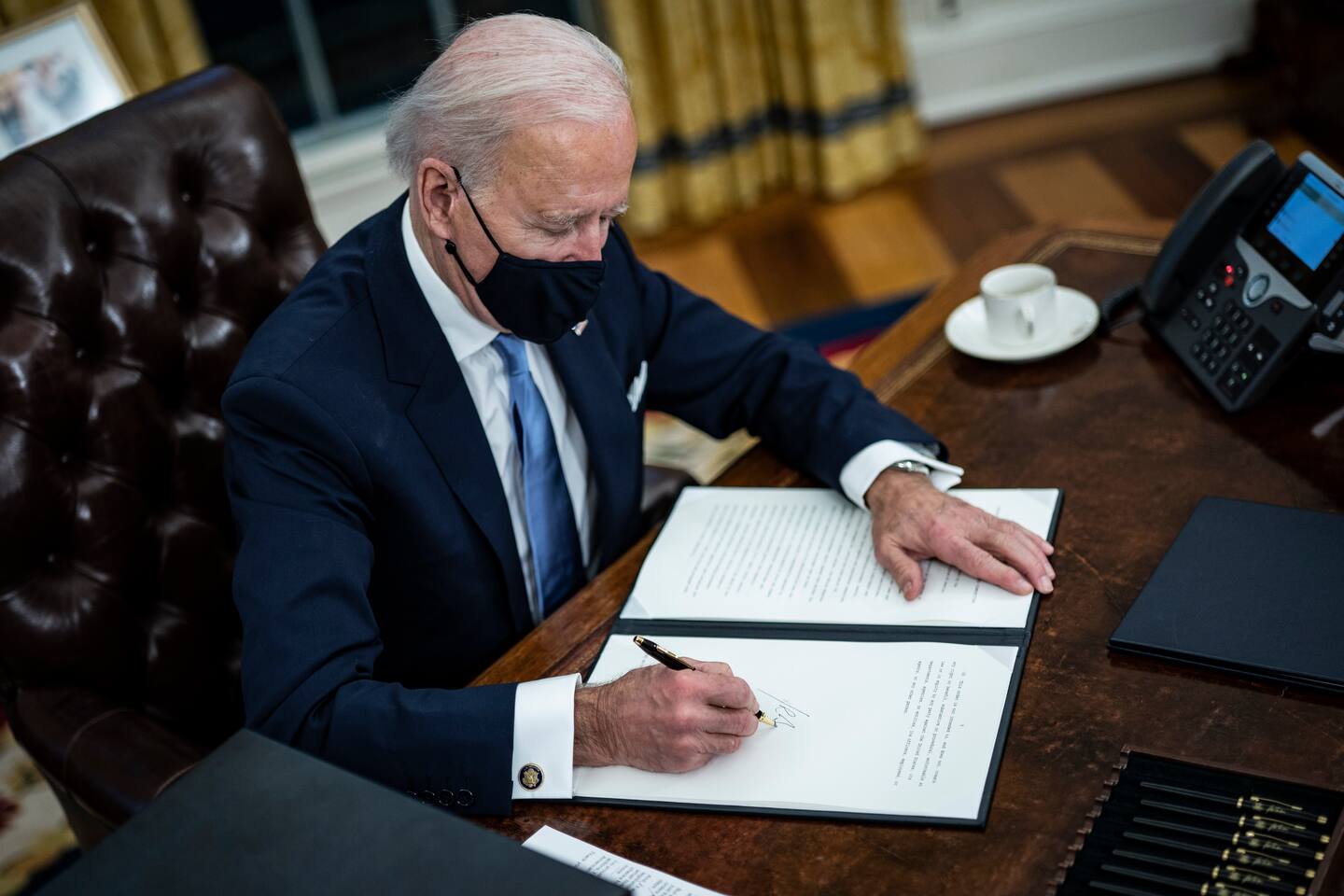At long last, a president declares that the era of small government is over

First out of the box is the $1.9 trillion pandemic relief proposal. In its scope and scale, Biden’s plan reflects the threat that the coronavirus poses to lives and livelihoods and the need for the federal government to act on a grand scale, unconstrained by anxieties about deficits or inflation.
Its first priority is public health: putting resources into vaccinations and the deployment of 100,000 public health workers, reaching into low-income communities, nursing homes, jails and prisons. The second priority is stanching the economic hemorrhaging. This includes essential support for state and local governments facing budget shortfalls that otherwise will cause them to lay off police officers, firefighters, teachers and other civil servants. And Biden’s plan puts money into Americans’ pockets — $1,400 per person for most adults, grants to small businesses and aid for renters, plus a multiyear increase in the minimum wage to $15 per hour. Third, the rescue package includes aid in areas vital to getting people back to work: resources for schools to reopen safely, money to keep public transit going, and child-care tax credits so parents can return to their offices.
Beyond the stimulus, the president has made it clear that his “build back better” mantra will follow in the rescue plan’s footsteps, with major investments to rebuild our infrastructure against the threat of climate change and revive U.S. leadership in research and innovation. In place of President Donald Trump’s denial of the climate crisis, Biden declared it the “existential threat of our time,” elevating it to a national security emergency, and mobilizing an “all of government approach.” Federal procurement will help build demand for renewable energy and clean “zero-emission vehicles,” with “Buy American” provisions to create “good paying, union jobs” in the United States. As for trade policy, Biden’s embrace of “Buy American” signals that China will not get a pass from this president, and the appointment of Katherine Tai as the U.S. trade representative, all suggest that Wall Street and multinationals will no longer have free rein to define U.S. trade policy.
Biden is essentially announcing that the Washington consensus — one that favors deregulation, austerity and pro-corporate trade policies — is bankrupt. If the United States is to meet the challenge posed by climate change and rebuild a competitive economy with a broad middle class, government investment and industrial policy will lead the way. His boldness has surprised many progressives, naturally skeptical of the candidate who trumpeted his moderation and boasted of his opposition to Medicare-for-all and the Green New Deal. The scope of the crises facing the country seems to have sobered the career politician, known mostly for tacking to the prevailing winds.
Now, the hard part begins. Centrist voices already warn of what the New York Times calls the “outsize aspirations” of progressives. They demand that Biden must find ways to compromise with a Republican Party whose leaders and members can barely acknowledge his victory, even after the Capitol riots. Worse, the “compromise” $600 billion plan offered by 10 moderate Republican senators reveals that they have no clue about the scale of economic distress Americans face. As President Barack Obama came to understand only too late, attempts to compromise with obstructionists gain nothing. In his first 10 days, however, Biden has issued a clarion call for action commensurate with the crises we face. The establishment’s resistance to real change is entrenched, but Biden must reject its retrograde thinking if he wants to build on his early success.
Read more:






